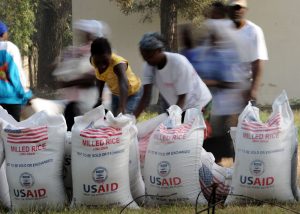*commentary on external blog post*
 Have you heard of the TOMS’ “One for One®” campaign? Essentially, with every pair of shoes purchased, a pair is sent to “a child in need.”
Have you heard of the TOMS’ “One for One®” campaign? Essentially, with every pair of shoes purchased, a pair is sent to “a child in need.”
At first glance, this initiative may appear compassionate, but it’s not that simple.
If TOMS provides large shoe supplies to poor communities, what happens to local cobblers? The cobblers are not able to compete with free products and simply run out of business. That is unfortunately why development in impoverished countries is constantly at a stand-still.
Scott Hughes, in his blog post “We Can End Poverty,” clearly states that infinite handouts given over long periods of time to the same people are neither efficient, nor effective, nor fair. What constant giving causes are an increasing dependency, a lack of local business, and a more impoverished society.

Take, for example, rice production in Haiti. A long time ago, rice was a luxury good for many Haitians, consumed only once a week, and actively being exchanged in local communities. Then, USA initiated the importation of tariff-free, subsidized rice to Haiti, destroying local agriculture, claiming it would help Haiti in its free market economy. Farmers were left with no jobs. Local agriculture completely stalled. How could local farmers compete with such low prices? To no surprise, in 2007, prices of foreign rice rose by 114% and there was no local produce to turn to in Haiti, leaving the situation a lot worse off than before.
Every day, aid such as TOMS’ “One for One®” is being provided by many organizations, including thousands of NGOs (non-governmental organizations). Without going into too much depth, this is a screenshot from a documentary called “Poverty Inc.” demonstrating how much of the money going into “helping the poor” actually goes towards helping them.

So what would truly help underdeveloped countries?
Scott Hughes suggests the introduction of both student loans and business loans in developing countries to provide local business with the opportunity to grow, as many countries have insufficient loan services due to improper laws. Next, he suggests providing access to business education. Teaching people how to run a business, identify customer segments, advertise, and enter the competitive market is key to local successful businesses. With these fundamental business skills, proper laws, and with no foreign “aid” in the way, countries such as Haiti can start to progress out of poverty.
Hughes’s article deserves to be heard as it opens the world’s eyes to the truth of the cause of poverty and how to stop it. His article and the documentary Poverty Inc., which I greatly suggest watching, have completely changed my view on global poverty and aid.
-444 words




